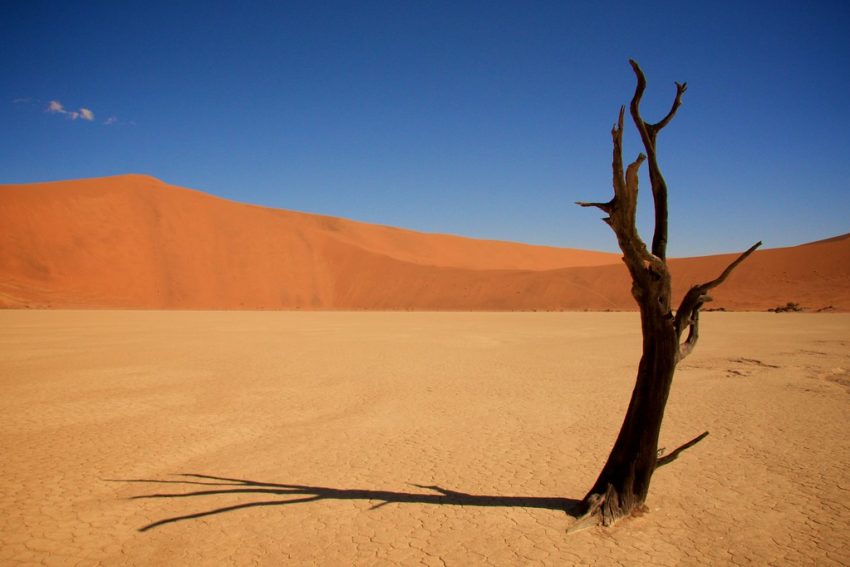
Dead Vlei – Sossusvlei National Park, Namibia is the perfect definition of contrast. Almost-black camelthorn trees point their skeletal branches to the bright blue sky. Meanwhile, their dead trunks and roots pierce through the dry white expanse of the clay pan. All of this surrounded by huge deep red dunes. There is a clear line indicating where one begins and the other finishes, making the stark contrast even more impressive.
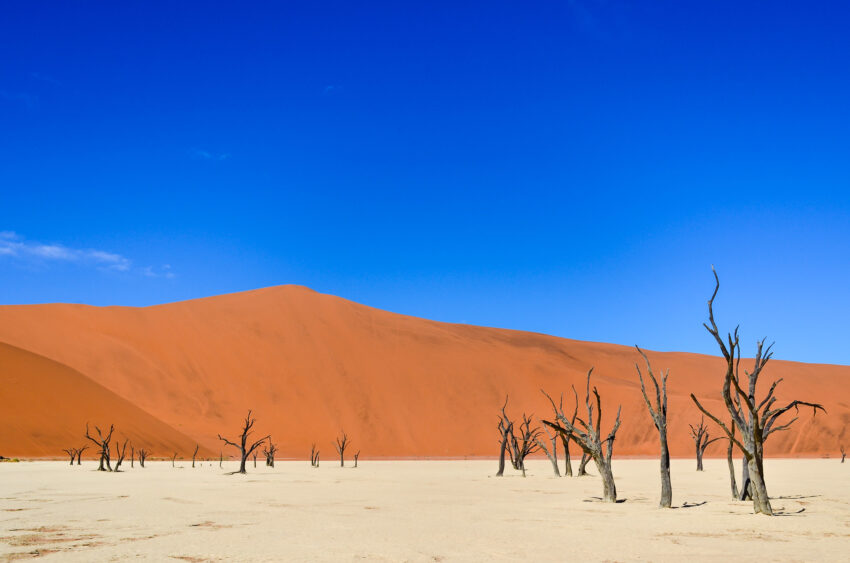
What is a “vlei”?
In case you were wondering, a vlei is a marsh pan. Dead Vlei originated when the Tsauchab River flooded and filled the usually-dry area with water. This is what allowed camel thorn trees to grow. Still, the climate changed again and drought hit, so the sand dunes surrounded the pan. Therefore the river had no longer access to it, causing the trees to die, and eventually forming the landscape that we know today.
Activity/Place Highlights
This stunning Dead Vlei is part of the Namib-Naukluft National Park of Namibia. The lifeless camelthorn trees that sprinkle the landscape are around 900 years old. However, they have been completely dry since 600 years ago due to the lack of water in the area and the scorching sun.

Dead Vlei is also popular for the red sand dunes that enclose the white pan floor. These are considered the tallest sand dunes in the world. Bid Daddy is almost 400 meters tall, which makes it the tallest in the entire park.
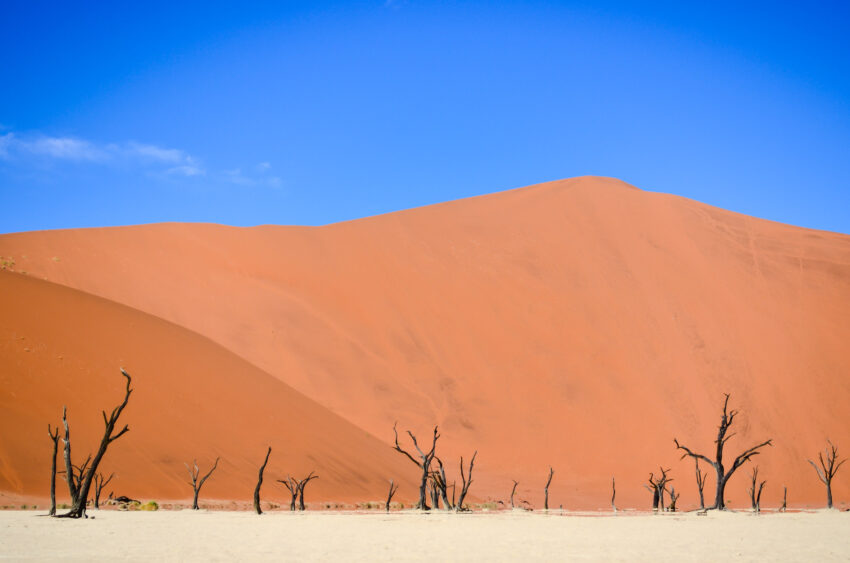
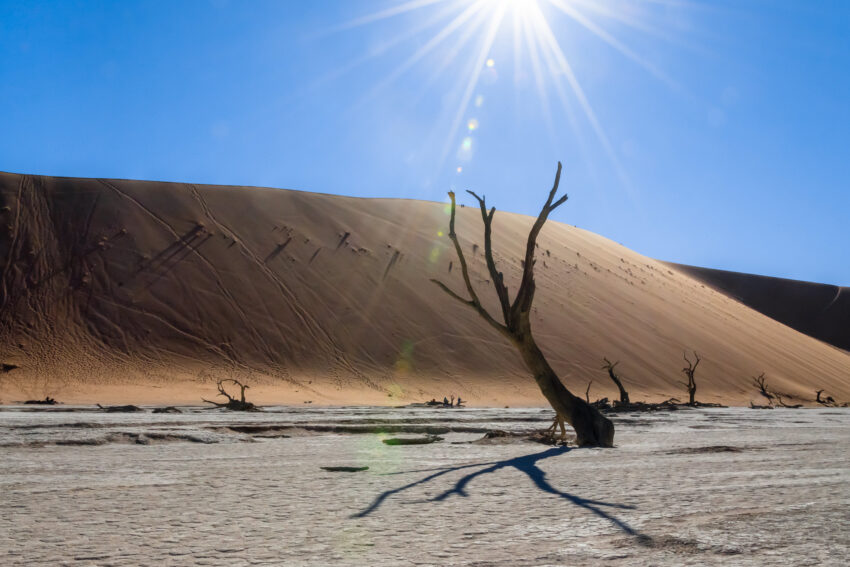
Life in the Dead Vlei
Even though there isn’t much water in the area, you can still find some living creatures within the vlei. Lanky ostriches and oryx pace around the pan or simply stand motionless under the blazing sun as if they were waiting for the day to cool down before they dare to move. If you look closer, you’ll even find small beetles burrowed in the sand, tilting their bodies to catch the morning dew that usually comes from the sea, to then drink the condensation that forms on their hard shells.
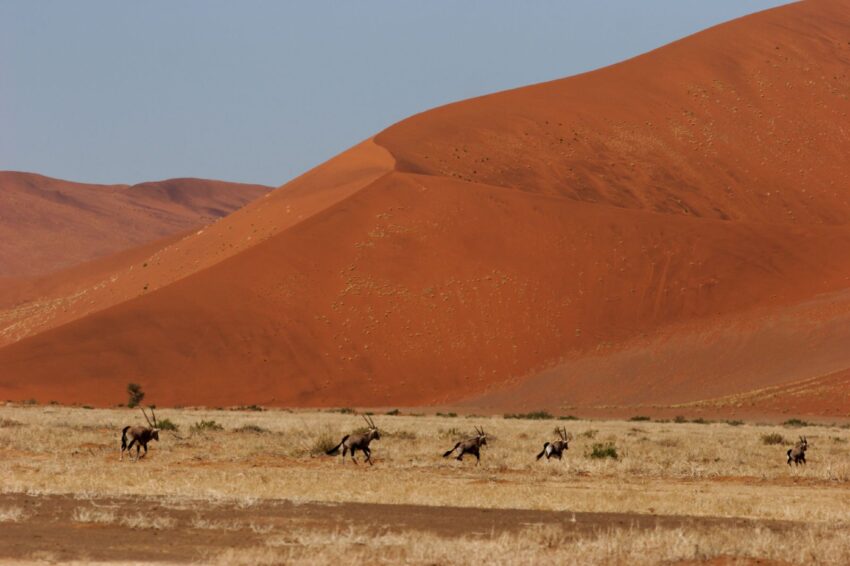
Climbing the dunes
However, this is not the only attraction on the site. Try climbing one of the dunes! Not only is it a crazy experience, but it will also allow you to get the best views of the desert. From the top, an endless chain of dunes stretches in front of you; a sight both humbling and awe-inspiring. If you do decide to try this, make sure to bring more water than you think you’ll need because, even though it’s worth it, it’s a hot and draining adventure.
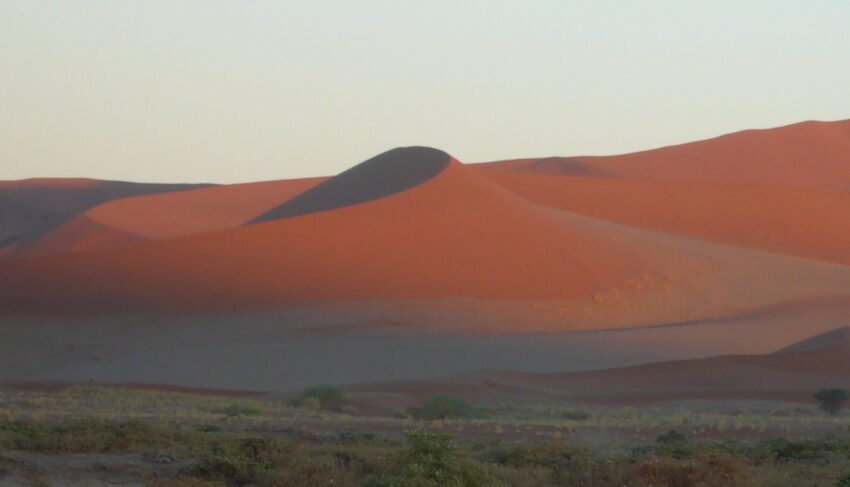
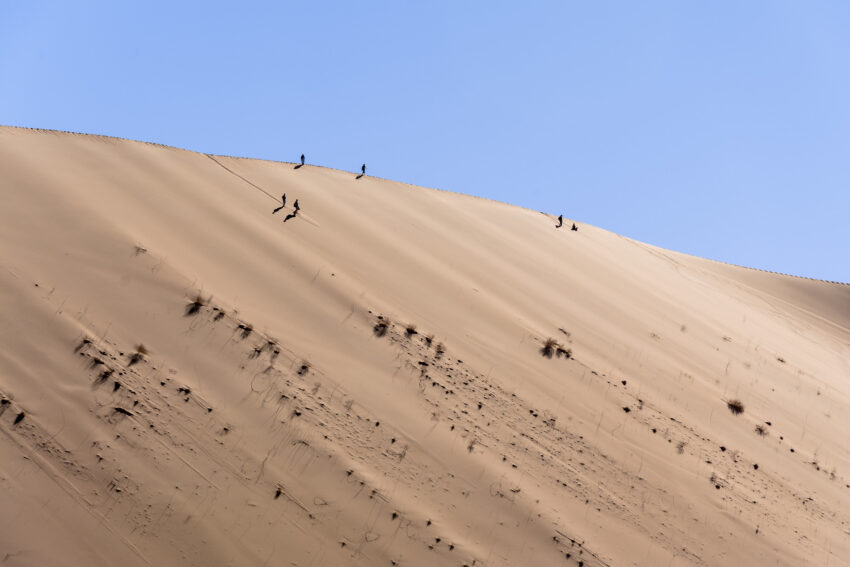
How to get there
You can reach the Namib-Naukluft Park by road from Windhoek, the Namibian capital, or from Cape Town along the South African border. However, driving across the desert is a hard task. You can find a parking lot for four-wheel-vehicles about 4 km away from the park. Drivers of two-wheel-vehicles have it a bit more difficult since they must use a parking lot about 60 km away from the park gate and then take a shuttle bus to the four-wheel-vehicle car lot. After that, it’s a tough 20-minute uphill hike to Dead Vlei.
Inside Information
Public transport to the park isn’t that good, that’s why most visitors rather stay at one of the luxury camps about an hour from the main park gate. The camps manage their own transportation into the park. Don’t worry if you can’t afford this since cheaper accommodation near the park gate at Sesriem is available although sometimes limited. I also suggest bringing plenty of cash because gas stations in the country don’t take credit cards.
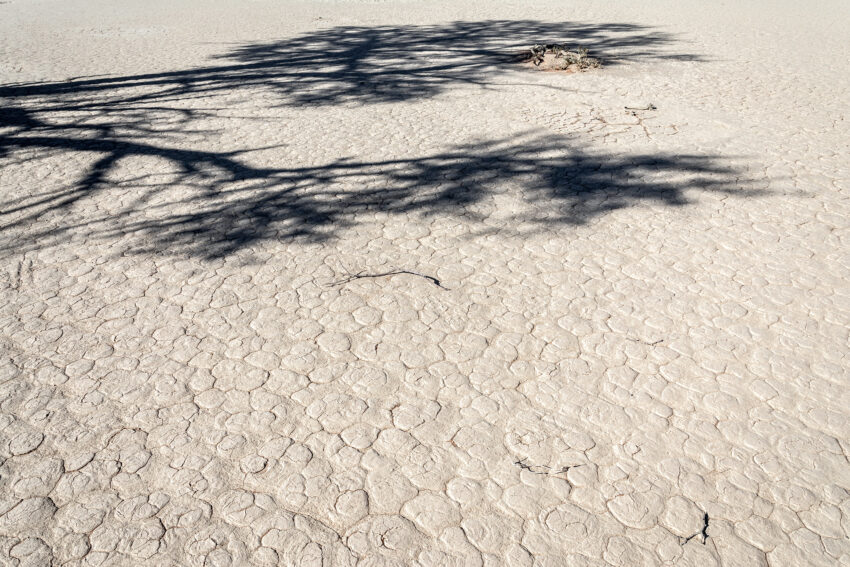
Other Nearby Attractions
Sossusvlei and Hiddenvlei
In the Namib-Naukluft National Park, there are a total of three vleis, including Dead Vlei. The other two are Sossusvlei, the biggest one, and Hidden Vlei, the smallest.
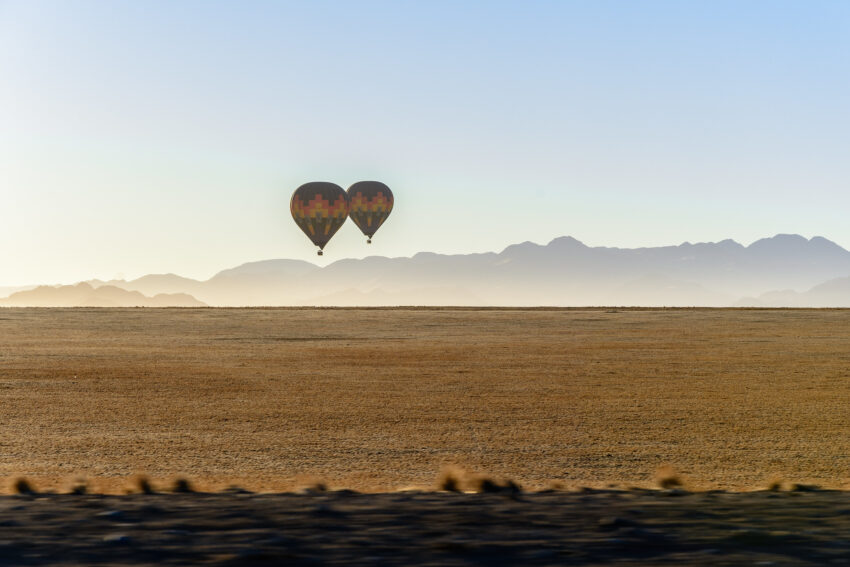
Source by dconvertini on Flickr – Under Creative Commons license
Skeleton Coast
I also recommend visiting the Skeleton Coast while you’re in Namibia. You’ll see shipwrecks, whale bones and maybe you’ll even find a lion on the beach along the Atlantic seaboard.
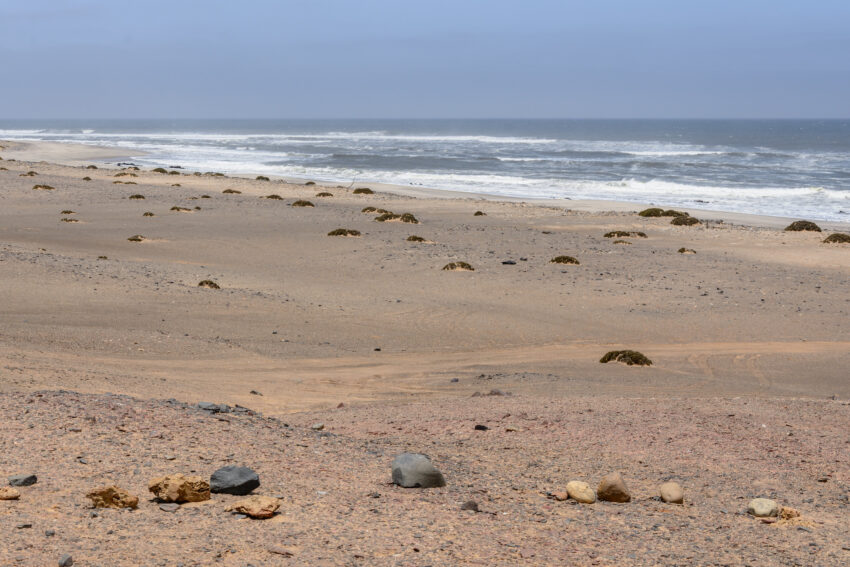
If you loved this article or found it useful, don’t forget to share it with your adventurous and travel-hacking friends! If you want more posts like this, follow us on Youtube, Instagram, Pinterest, Twitter or Facebook and subscribe to our newsletter!

